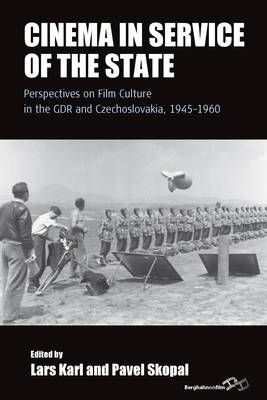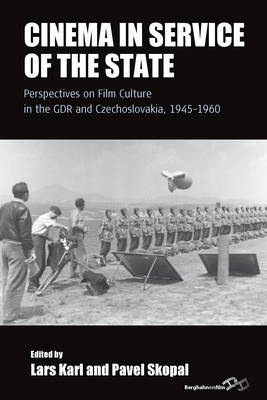
- Retrait gratuit dans votre magasin Club
- 7.000.000 titres dans notre catalogue
- Payer en toute sécurité
- Toujours un magasin près de chez vous
- Retrait gratuit dans votre magasin Club
- 7.000.0000 titres dans notre catalogue
- Payer en toute sécurité
- Toujours un magasin près de chez vous
Cinema in Service of the State
Perspectives on Film Culture in the Gdr and Czechoslovakia, 1945-1960
Description
The national cinemas of Czechoslovakia and East Germany were two of the most vital sites of filmmaking in the Eastern Bloc, and over the course of two decades, they contributed to and were shaped by such significant developments as Sovietization, de-Stalinization, and the conservative retrenchment of the late 1950s. This volume comprehensively explores the postwar film cultures of both nations, using a "stereoscopic" approach that traces their similarities and divergences to form a richly contextualized portrait. Ranging from features to children's cinema to film festivals, the studies gathered here provide new insights into the ideological, political, and economic dimensions of Cold War cultural production.
Spécifications
Parties prenantes
- Editeur:
Contenu
- Nombre de pages :
- 406
- Langue:
- Anglais
- Collection :
- Tome:
- n° 18
Caractéristiques
- EAN:
- 9781785337383
- Date de parution :
- 01-09-17
- Format:
- Livre broché
- Format numérique:
- Trade paperback (VS)
- Dimensions :
- 152 mm x 226 mm
- Poids :
- 544 g

Les avis
Nous publions uniquement les avis qui respectent les conditions requises. Consultez nos conditions pour les avis.





